Images
The Copy II PC Option Board (non-deluxe)

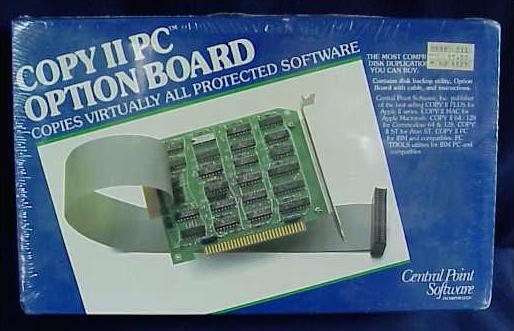
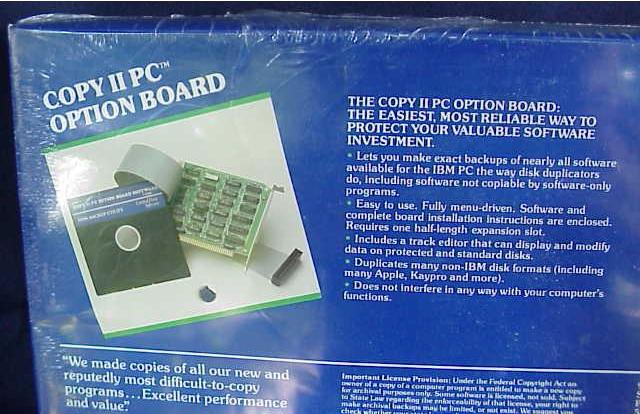
The Central Point Deluxe Option Board
(click for full-size PNG images, 2.5meg apiece)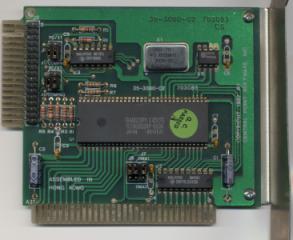
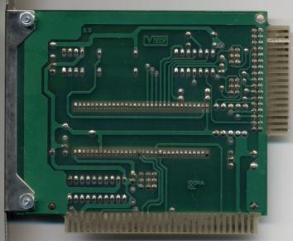
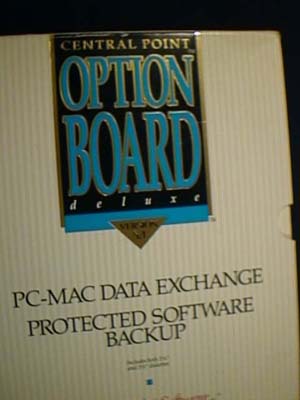
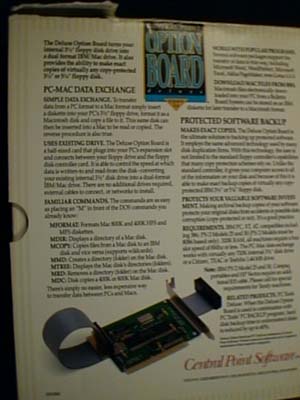
The Enhanced Option Board
(click for high-quality JPG images)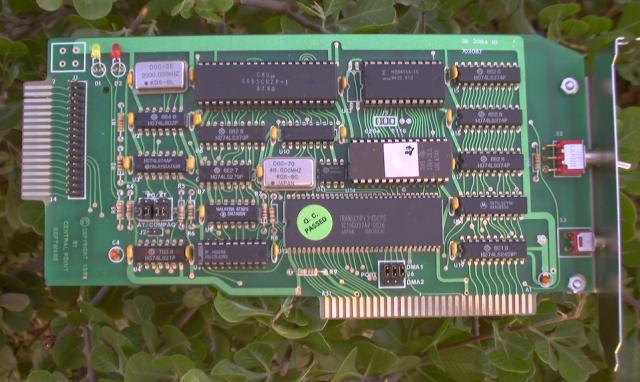
Transcopy in action

TE, the Track Editor
A famous IBM PC disk boot sector:
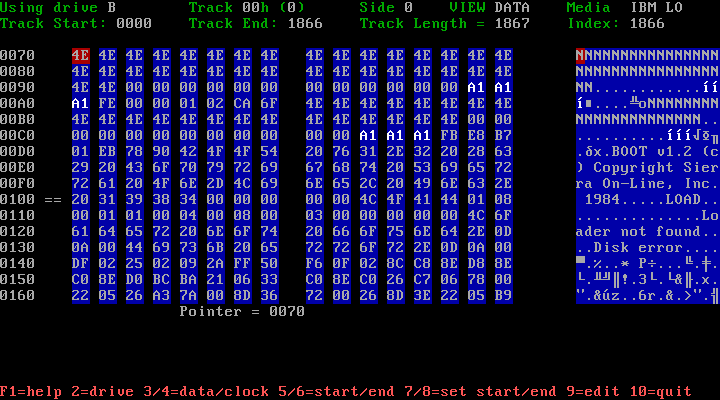
TE can even edit the clocking/sync data on the diskette:
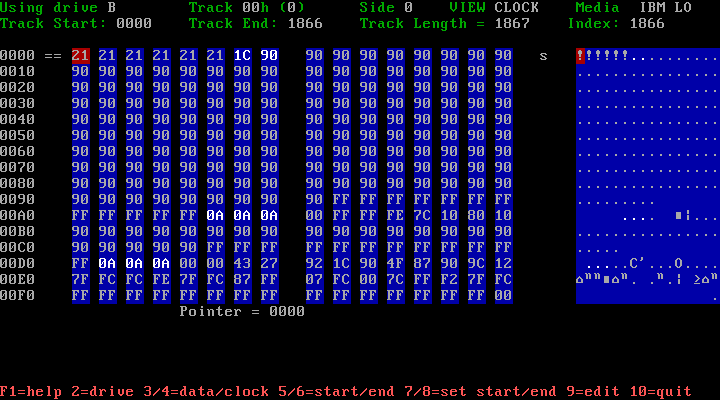
Disk Duplication Service
If you send me the blank disks, postage fee, and $1USD per copy, I will make duplicates of low density 5.25 or 3.5 inch (160/180/320/360/720KB) IBM/DOS-format diskettes for academic or personal users. For business users, contact me at nemesis@icequake.net.
Send blank disks, a postage-paid magnetic media return envelope, instructions for testing the copy, and cash or money order to:
Items received without payment, identification, return mail envelope/postage, or blank diskettes will be held. I will provide blank diskettes at a cost of $5 per diskette, include this with your payment if you wish to go this route. If you ship USPS, use insurance and a magnetic media mailer please, and send me the tracking number.
I can transfer Apple II, IIgs and Compact/Classic Macintosh disks to disk image files and retrieve individual document files off those disks as well. I can also restore backup sets from Central Point Backup (PC Tools, PC Backup, CPBACKUP) disks and similar utilities. Contact me for pricing on a specific task you have in mind.
I am buying half-height 360KB drives and Option Boards. I'll trade copying services for either of these items. In the case of Option Boards, I will purchase them outright from you for a reasonable price.
Links
- Sierra AGI Back-up Disks
- Yesterday's Personal Computers with more information about each of the Option Board variants
- OldSkool.org, your classic IBM PC resource. Thanks to Trixter for lots of the software here and corrections.
- The Retrograde Station, the source for cracked IBM booters and images. Donate your rare Option Board images here!
- Discuss the Option Board on the Classic Computing mailing list
- Diskwarez, the resource for DISKED and DISKBUG among other disk-related information
- Creating Apple Disk Images With The Central Point Deluxe Option Board
- 1987 PC Magazine article about copying copy-protected disks
History
In 1981, a little-known company called Central Point Software released a nibble copier for the Apple ][ called Copy ][ Plus. Overnight, it shook up the industry. Never before did a user have so much control over the data on their machine. Copy ][ allowed the user to do anything from file management to making perfect bitwise copies of copy protected software diskettes.
Copy ][ was a massive success. In 1983, Central Point released a similar utility for making disk copies on the IBM PC called, aptly, Copy II PC. It was a vast improvement over the DISKCOPY command that was shipped with DOS. But, it could only do so much, due to the IBM PC's floppy controller hardware being asymmetric in nature (it can read much more information from a disk than it can write). Hence vendors would custom-format floppies to put information in the readable but not writable area, making it uncopyable by the IBM PC hardware.
Enter the Copy II PC Deluxe Option Board. Released in 1986, it is probably one of the most unique pieces of hardware ever produced for the PC platform. It is a simple board that is installed in between the floppy disk controller card and the floppy drive. Its function? To place the floppy drive completely under control of the Transcopy software that it shipped with, enabling the drive to do everything that the protection vendors were counting on PC drives _not_ being able to do.
Central Point charged $159 for the Option Board when it was released, and the boards flew off the shelves faster than they could make them. Central Point was an overnight household name in geek circles. When vendors released new protections, Central Point issued updated Transcopy software to handle the new schemes.
edit: They also purposefully removed some functionality in later releases due to pressure from the companies whose software was broken by the Option Board. Thus earlier versions of Transcopy may copy software that later versions will not. Thanks Trixter.
Nearly immediately, the PC diskette protection business came to a grinding halt. How could you make a profit when it's costing people practically nothing to completely undercut your business? Protections shifted from disk-based schemes to documentation checks, serial numbers, registration keys, and port dongles. By 1990, nearly all diskette-based copy protection had disappeared forever.
The result was disastrous for Central Point. Demand for the board ceased once new software no longer had disk-based protection. In 1989, Central Point stopped manufacturing new Option Boards, and in 1990 closed out the stock at $100 apiece. In 1993, Central Point (and its PC Tools and CP-Backup franchise) were swallowed by Symantec. The thrill ride was over.
Epilogue
One legacy remains today from the Option Board and from Central Point Software, the gutsy little software vendor who defied the desires of an entire industry, and against the wishes of its megacorporate brethren, gave users the power they wanted over the software they owned.
edit: Actually this isn't entirely true; in the end they caved into vendors' demands, and removed some capabilities from later versions of Transcopy, as Trixter points out. See this BBS post, sent by aw79 (thanks!)
If it weren't for the Option Board, we might still be dealing with keydisks and booters today. Who knows?
Of course, we still have media-based protections today that, while inconvenient, are easily defeated by commodity hardware. Any kid in the world with a decent CD burner can copy any protected disc out there. So the issue of protected software is almost not even an issue anymore.
The Deluxe Option Board will forever haunt vendors of copy protection malware; a marvelous feat of engineering and ingenuity that it was. Central Point saw a need for something, and in the truest of American tradition, fulfilled it, even having their legs broken for it.
The Option Board proved once and for all, and is still a reminder in the DMCA-threatened time of today, that no matter what draconian and proprietary barriers are put in its path, fair use will always conquer, as human ingenuity knows no bounds.
Obligatory DMCA rant
Guess what? Under the laws of today, the Option Board would not have been legal. In fact, most disk copiers of the day would not have been. Under the DMCA, any "copyright protection circumvention device" is illegal to manufacture, sell, or use.
The DMCA (Digital Millenium Copyright Act) of 1998, signed into law by Bill Clinton and the Democrat Party, takes your fair-use rights away and places them directly into corporate control. Naturally, the copyright industry applauded this law, as they want every bit of control they can muster over how you use the software that you've paid for. They also run extensive spin campaigns to make it quite apparent just how bad "software pirates" are (Ashcroft calls them "digital terrorists", LOL), and how much money they lose to "software piracy" every fiscal period.
The tactics used are alarmingly similar to the DEA anti-drug propaganda campaign. When you take the BSA and IDSA raids and seizures into account, and the vast foreign powers that make an entire industry of software copying, the war on piracy is unbelievably similar to the "drug war". And, like the drug war, it is ultimately futile and not beneficial to society. If people want to do drugs, they'll do them. If people want to copy software, they'll copy it. Reasonable alternatives should be focused on, instead of spending billions of taxpayers' dollars and passing laws, to fight losing battles that any rational person would admit really aren't that important anyway. They are losing battles in each case because, even though the majority has voted laws against them, there are still a significant number of people who are in favor of piracy and/or drugs.
Fair Use
As the war on drugs lost us medicinal use for "illegal" drugs, and the war on "terrorism" led to our individual privacy being signed away in the "Patriot Act", our right to fair use has been effectively neutered with the DMCA.
Fair use entitles you to at least one backup copy of software media in the case that the original media would be damaged or lost. That was twenty years ago. Now, not only are you not allowed to make a backup copy because of protection, if you circumvent the protection to make a copy, you've just broken the DMCA and are subject to years in prison and hundreds of thousands in fines. The DMCA has effectively legislated fair use out of existence, so now vendors are free to play whatever games they want with the purchasers of their product, and only the purchaser stands to suffer for it.
Anyway, whatever rose-colored image of their grand and benevolent intentions the media companies would like to paint to the average American consumer, the bottom line remains that the DMCA has taken more power away from the little guy, and placed it into the hands of the big boys. This year, we've had to fight off even another law (the SSSCA and CBDTPA) that would have made "digital devices without copy control measures" illegal. The computer on your desk? Illegal. Your car stereo? Illegal. Your wristwatch? Illegal. These restrictions were masked under the supposedly benevolent title of the law, "The Consumer Broadband and Digitial Television Promotion Act". Given that slimy title, and knowing nothing else about it, what would you have done if it was on your ballot?
When will the baloney stop? When we stop electing public officials who kowtow to corporate interests over the interests of society as a whole. And if you care at all about the state of digital technology, you must join the effort to resist this anti-individual, corporate legislation.
Getting involved
Please visit the Anti-DMCA to read more information and learn how to voice your concern about these laws that are impeding the intellectual progress of America, by protecting the short-term interests of a chosen few. (And doing it under the thin veil of "advancing consumer technology by protecting intellectual property".) Also visit Chilling Effects for a reference to the actions that have been taken under these new IP laws, and how you can protect yourself. Donate money to the Electronic Frontier Foundation, a group of lawyers and scholars who are attempting to redefine electronic laws. These are the good guys; they need your help! And read Slashdot and Kuro5hin for the latest news and discussion about such topics.
And please use an operating system that is created and controlled in the public interest, and not by a greedy multinational corporation which is focused on eliminating your choice to use any software but its own.
</rant>
Ryan Underwood, <nemesis@icequake.net>
Last modified: 04/14/2002